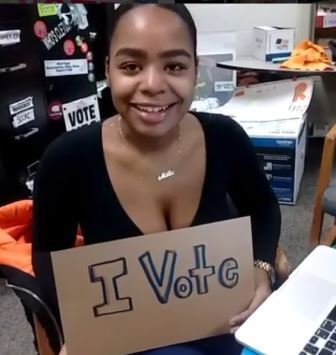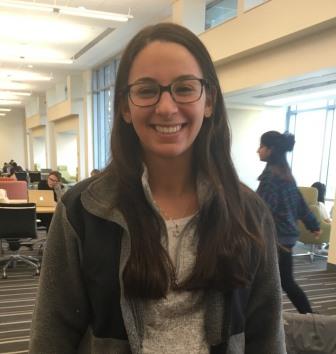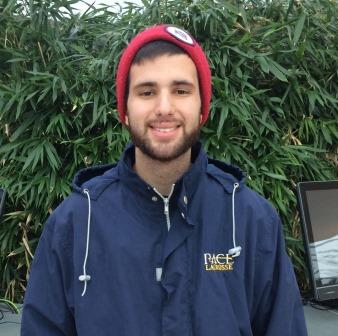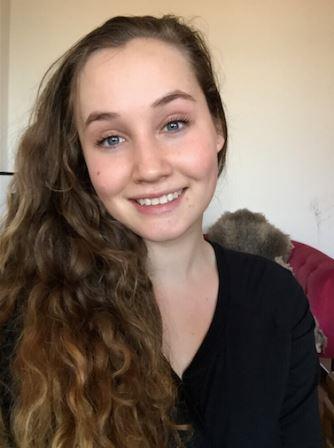


As a senior in high school, I did not think college would ever be in my grasp. Most of my family did not go to college so I thought I would not either. I was unsure how I would pay for my higher education. Thankfully, my high school had a terrific career program that provided the necessary tools to make my college dreams a possibility. I applied to SUNY Cortland through their Educational Opportunity Program (EOP) and was admitted. I am grateful to have come across this program. They helped me prepare for college socially and economically, as well as help me prepare in terms of academics. I receive financial aid in order to help pay for school, however a majority of the additional costs are placed on my shoulders. Aside for paying for tuition, I front the cost of other expenses such as food, social activities, toiletries, textbooks and other school supplies. The list can go on forever, As an off-campus resident, I must also pay rent. I am taking eighteen credits and also working two jobs to help me with the cost of living.
I am studying sociology and professional writing and planning on attending graduate school. I am an aspiring counselor and believe that the investment for a postgraduate degree will increase my chances of employment, and ultimately allow me to pay off loans more efficiently.



My dad takes care of the FAFSA for financial aid. He takes out the Parent-Plus Loan, as well. So, it’s all just basically financial aid and loans. My dad lost his job when I was in high school and he was still paying off my older sister’s undergrad. And I have a twin, so they’re paying college tuition for three people at this point.
When he lost his job, it (the expenses) fell onto my mom. It was hard to figure out where I wanted to go because I couldn’t afford to go to a private school. Now my dad’s a real estate agent and my mom still has her job. If it wasn’t for loans, I wouldn’t be able to go to college. My car was bought with a loan, too. My car was paid for through a loan that my mom is still working off. My car was $20,000 and I was wondering, “Mom, why did you let me buy this?” But, she’s already paid off half of it. I love my mom, she works so hard. I pay for my own gas and I have a job. My rent and bills are paid through the loans because you can put off-campus housing on it. I can’t afford luxury items, though. Like, I need a new laptop, but I can’t buy one. I’ve had to be smart and budget.



I’ve paid for college by working and getting loans because I don’t get any assistance from the government. I take 17 credits and work almost 40 hours per week at a bar. A lot of the times, I work double shifts. This has affected my schooling a lot. I’ve missed school because I was so tired. It has been just depressing, generally.
I’ve never bought textbooks for school, either, and this is my senior year. I would ask my parents to help me out with food costs or bills if I could, but most of the time I’ve covered those expenses by working. All the remaining money is used to cover what my loans don’t cover for tuition.

I’m taking out student loans, and working. My parents covered the first couple of years. This semester, I didn’t buy all of my assigned books for class. It seemed like a good way to save money.
Because I work about 20 hours per week while taking 16 credit semesters, I don’t have a lot of time to do anything but work.

I have private loans and some scholarships that I receive. Mainly, I’ve struggled with keeping up with my bills. The only real struggle right now is my car insurance. It goes up as I get older, as a man. My scholarships cover textbook costs, although sometimes I have to spend extra to get online software. So, I have to pay out of pocket for that — usually like $40.
When I was in community college, my car broke down on my way to school and I had to pay $6,000 out of pocket to get my transmission fixed. It kind of broke me. It just stressed me out all the time because I had to work so hard to afford that while going to school.



I’ve paid for college through a combination of loans, both public and private, tuition assistance, and money out of pocket. The first three years of school I really struggled. I’d been living on my own since I was 17, and had little to no help with bills and regular living expenses. Starting college made everything 100 times harder. My father has substance abuse problems and been in and out of rehab for the past ten years so although he makes money on paper, my family doesn’t see any of it. Because of this, I couldn’t qualify for TAP. I work part time throughout the year and full time over the summers, and I put every penny towards paying for off campus housing.
I paid for tuition, books, transportation, and food with loans that I took out. In the past, I’ve even had to take out private loans, because financial aid alone didn’t cover my needs. In the last year however, my mother was finally able to claim me on her taxes, so I got the tuition assistance that I really needed all along. Even though my aid doesn’t cover everything, it is such a big help to not to pay for everything out of pocket and through loans. I can finally focus on my coursework and extracurricular activities. I could only imagine how different college would have been for me if I had had this assistance throughout.



Coming from a family of six children, my parents, unsurprisingly, can’t afford to pay much for my college education. Each summer I work over eighty hours a week to make enough money to pay my university bills and cover the cost of living. I have worked in restaurant kitchens, ice cream stores, and outdoors as a canvasser. Of course the demanding hours and high energy these jobs require leaves little time for summer leisure– but one of the biggest challenges it presents is an inability to apply for internships, many of which are unpaid. Being unable to gain work experience in my area of study creates a whole new path of challenges by itself. Jobs today require more experience than many educated people like myself have the time for. I worry that I will be unable to find a lucrative job after graduation, or that people who have had the resources to take unpaid internships will be favored for their experiences.



I am a veteran who served in the United States Air Force for 4 years active duty and 1 year Air National Guard for New Jersey. With the completion of my contract, I received funding for education through the 9/11 GI Bill. This bill pays for 48 months of school, including tuition and part of my cost of living. I pay for my monthly metrocard, New Jersey transit monthly pass, textbooks, food and rent out of pocket.
Because my textbooks are all at least $200 each, I’ve chosen not to buy any of them this semester. I just go to library. If I want to do any reading or studying I have to go to the library and can’t take the book home. As for the rest of these costs, if they were covered I could use the money I make toward investing in my future career instead of just getting by month to month. I’ve started a record label but I can’t invest in it the way that I want. This is stalling my career aspirations. I really want this microphone that Michael Jackson used in all of his records and that one of my favorite rappers, Logic, is using. But it’s $400 — which is the price of my metrocard and NJ transit monthly tickets combined. I’m also trying to buy a house, which would be expedited if I didn’t have all of these costs.



I pay for my tuition entirely out of pocket with no financial support from my family. I was forced to drop out of my four year public college because my family fell on hard financial times and TAP didn’t cover enough of my outstanding tuition costs. I worked for four years in order to afford to send myself back to school.
Even now, I am constantly at risk of having to leave school again because of financial reasons. I’ve had to choose between buying textbooks and buying groceries, and I’ve frequently gone hungry in order to make timely payments towards my education. Because of my independent status and other factors, I don’t qualify for any financial aid, state or federal. I will be transferring to a four year public college next semester, but without financial assistance from the state, my future at that school is uncertain.



I am a resident of Brooklyn, NY and go to the Pratt Institute of Art and Design. My family is unable to afford higher education by itself. Pratt has one of the highest college tuition rates and although it is a private school its students do get help from special programs such as the Higher Education Opportunity Program (HEOP). Without this program, it would be impossible for me and for many other people to afford higher education. Currently I have two part time jobs, which interfere with my schooling.
I am also worried about my future financially when I get out of college. It is hard to focus on schoolwork when finances are an issue, and it is especially hard knowing your parents back home are struggling to secure a future for their child. Funding for education is funding for the future, and I don’t think any person should have to struggle and worry about their future. I do not want others to worry and struggle like my family does. If New York does not fund higher education, they are endangering the future for everyone. Education should be given to anyone who has the desire to learn, regardless of their ability to pay. Please, set an example for the rest of the country and the world by funding higher education.










